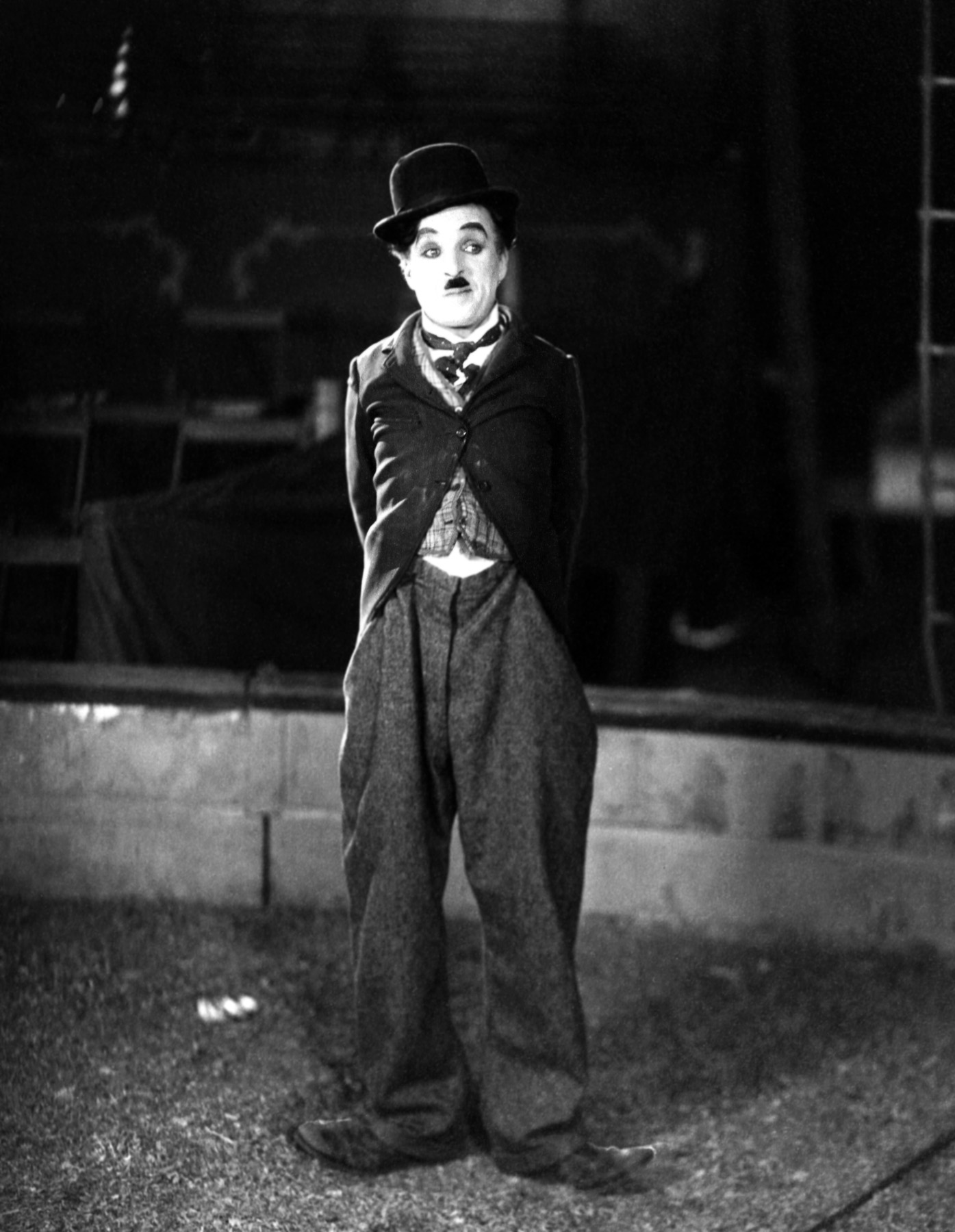Chaplin, Charlie (1889-1977), became one of the most famous stars in motion-picture history. During the era of silent comedies, he was often called “the funniest man in the world.” Chaplin also gained complete control over production of his films. He wrote and directed nearly all his films, and he composed the music scores for all his sound pictures.

Chaplin’s stardom began in 1914, when he first appeared as “the Tramp” or “the Little Fellow.” Looking undersized and undernourished, Chaplin wore a small mustache, a battered derby hat, a coat too small for him, and pants much too large. He walked in a shuffling manner that suggested he had never worn a pair of shoes his own size. But this figure of poverty also wore gloves and carried a bamboo cane that seemed to reflect a spirit that bounces back from the most crushing defeats. The last shot in many of Chaplin’s early silent films shows him walking down a road into the distance. The Tramp was homeless and penniless once more, but with hat tilted and cane flourishing, he again was ready for whatever adventure lay around the corner.
In 1919, Chaplin formed the United Artists film corporation with actor Douglas Fairbanks, Sr., actress Mary Pickford, and director D. W. Griffith. He made fewer pictures, and those he made were longer and more serious. He continued to create laughter, but he also seemed to be commenting on why the world of respectability and authority offered so little to the human soul. His films during this time included The Kid (1921) and The Gold Rush (1925). Chaplin played the Tramp in these films and in his first two sound films, City Lights (1931) and Modern Times (1936). In The Great Dictator (1940), he played two roles, a humble Jewish barber and a tyrant based on the German dictator Adolf Hitler. Chaplin played a murderer in Monsieur Verdoux (1947) and an elderly music hall comedian in Limelight (1952).

Charlie Chaplin in a comedic scene
Charles Spencer Chaplin was born on April 16, 1889, into a poor London family. He became a variety and music hall performer and began touring the United States in 1910. He lived in the United States for more than 40 years but never became a citizen.
In 1943, Chaplin married Oona O’Neill, the daughter of American playwright Eugene O’Neill. It was Chaplin’s fourth marriage. Two of Chaplin’s children became successful actors. They were Sydney, by Chaplin’s second wife, Lita Grey; and Geraldine, by Oona.
In the 1940’s and early 1950’s, Chaplin was a center of controversy. Some people criticized Chaplin’s personal life as immoral and accused him of supporting Communism. In 1952, Chaplin traveled to Europe. The U.S. government announced that Chaplin could not reenter the United States unless hearings were held on his personal life and political views. Chaplin decided not to return, and he and his family settled in Switzerland.
In 1972, Chaplin took part in ceremonies in his honor in New York City and Los Angeles. Chaplin received an honorary Oscar at the annual Academy Award ceremonies in April. The Academy praised Chaplin “for the incalculable effect he has had in making motion pictures the art form of this century.” In 1973, Chaplin won an Oscar for best original dramatic score for Limelight (1952), released in the United States in 1972. In 1975, Chaplin was knighted by Queen Elizabeth II. He died on Dec. 25, 1977.
See also United Artists.
